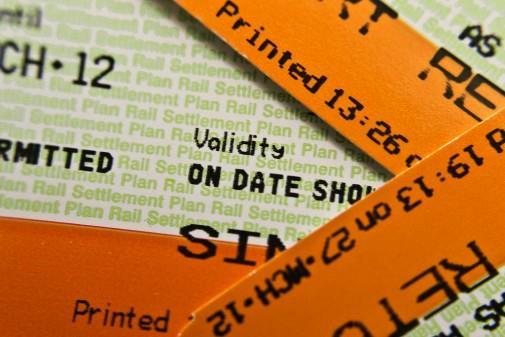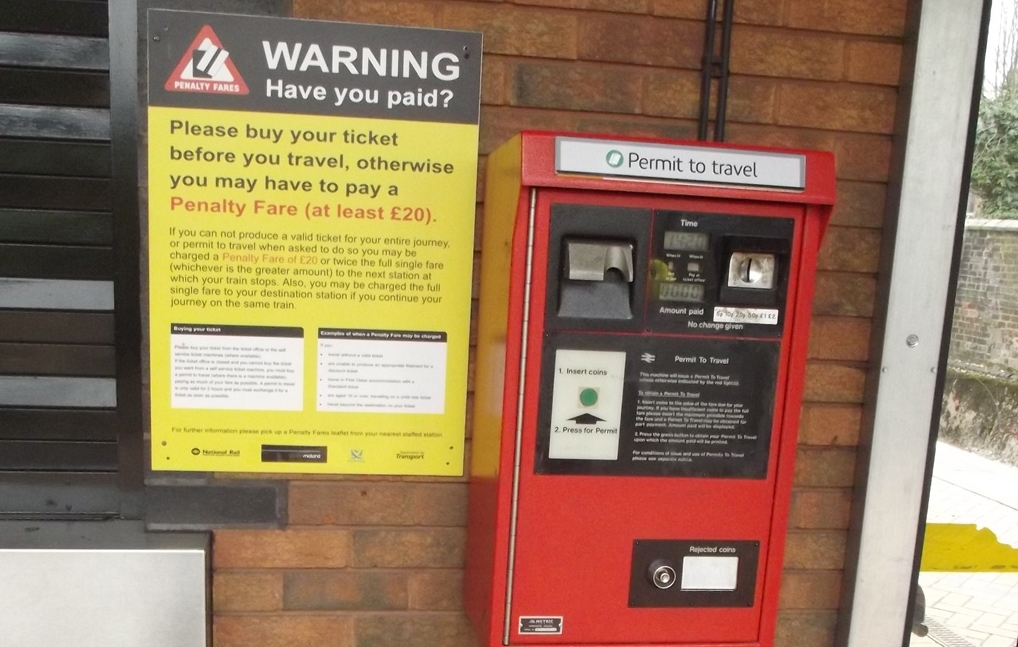Finding yourself accused of fare evasion can be alarming and stressful. You might have simply forgotten to tap your Oyster card, misread the zone limits, or, in more serious cases, been accused of deliberately travelling without a valid ticket. Whatever the circumstances, the stakes can be high, penalties range from hefty fines to potential criminal prosecution.
As a solicitor who has handled numerous fare evasion matters, I understand the questions and anxieties that arise at this critical point. This article will walk you through the essentials: what fare evasion means, your legal obligations, the consequences of ignoring or mishandling a penalty notice, and how a legal professional can help you navigate the process. By the end, you should feel better informed about your options and the steps you need to take to protect your rights.
Stop! Don’t reply yet.
If you’ve been stopped by a ticket inspector, given incorrect details, or received a letter about fare evasion, your next move matters. A rushed response can make things worse.
Speak to our Network of Fare Evasion Solicitors first. A short call could help you avoid escalation.
- Free, confidential discovery call
- Advice before you respond to any letter
- Clear explanation of risks and options
- No pressure. No obligation.
Important: If a letter asks for your explanation, it’s usually best not to respond until you understand the consequences.
Understanding Fare Evasion in the UK
What It Is and What Constitutes It
The term “fare evasion” generally refers to travelling on public transport without paying the full required fare. This can include:
- Boarding a train, bus, or tram without a valid ticket.
- Overstaying your zone limit on a Travelcard or an Oyster card.
- Using a concessionary pass that you are not entitled to.
- Intentionally bypassing ticket barriers or misusing someone else’s season ticket.
Transport operators in the UK, such as Transport for London (TfL), major rail companies, and local bus services, take fare evasion seriously. Although some accusations stem from genuine mistakes, the law still allows operators to pursue penalties and, in serious or repeated cases, criminal charges. Fare evasion is covered by various pieces of legislation, including the Regulation of Railways Act 1889 and local by-laws, making it a prosecutable offence.
Responding to an Accusation
What Happens When You're Accused?
If a Revenue Protection Officer (RPO) or any transport official believes you have travelled without a valid ticket, you may receive a penalty fare notice on the spot, or you could be reported for prosecution and later receive a letter summoning you to respond. The immediate steps you take are crucial:
Stay Calm and Cooperative
Arguing aggressively or refusing to share basic details with the officer can escalate the situation. Provide correct information but avoid making admissions of guilt until you fully understand the allegation.
Collect Evidence
Make a record of the event, noting the time, station or stop, and any details about the journey (such as ticket machine malfunctions or station gate issues). If there were witnesses to the misunderstanding (for instance, if you tried to pay but the machine wouldn't accept payment), gather their contact details.
Check Deadlines
If you receive a penalty fare notice or a letter, it will outline how long you have to respond, often within 21 days. Missing this deadline can lead to increased fines and even a criminal summons.
How Long Do You Have to Respond?
Generally, you must pay or appeal a penalty fare within the timeframe stated on the notice, usually 21 days. If you ignore the letter, the transport operator may escalate the matter to the courts. This is why swift action, either by paying the penalty or launching an appeal, is paramount.
Potential Outcomes and Consequences
What Happens If You're Prosecuted?
If you fail to resolve the notice or if the operator believes the offence was severe or deliberate, you could face prosecution. For a first-time offence that appears unintentional, a transport company may still decide to settle out of court if you demonstrate genuine confusion or hardship. However, in more clear-cut or repeated cases, you can be summoned to a Magistrates' Court, where a conviction might lead to:
- A criminal fine (sometimes in the hundreds or even thousands of pounds).
- A criminal record if found guilty.
- Additional prosecution costs.
Will You Get a Criminal Record?
A criminal record for fare evasion depends on the outcome in court. Paying a penalty fare notice itself does not result in a criminal record, it is a civil matter. However, a criminal prosecution under the Regulation of Railways Act 1889 or similar legislation, if it leads to a guilty verdict, can create a record that may impact future employment, visa applications, or professional qualifications.
Will Fare Evasion Show Up on a CRB or DBS Check?
In England and Wales, a criminal conviction for fare evasion will appear on a Disclosure and Barring Service (DBS) check. Enhanced checks, often required for positions in education or healthcare, are particularly thorough. Even if fare evasion might seem minor, a conviction may cause potential employers to question an applicant's honesty or integrity.
Legal Representation: Why It Matters
What Can a Solicitor Do for You?
A solicitor experienced in fare evasion and Oyster card offences can:
- Examine the Evidence: Spot errors in the transport operator's case, such as incorrect passenger details or an improperly issued penalty notice.
- Negotiate Settlements: In many instances, solicitors successfully resolve cases out of court by demonstrating mitigating circumstances or procedural flaws.
- Provide Representation: If the matter proceeds to court, having professional advocacy can make a significant difference in penalty reduction or case dismissal.
Is Legal Aid Available?
Legal Aid for fare evasion cases is not generally common, especially if the matter is considered a minor offence and is heard in the Magistrates' Court. Each case is unique, so it is wise to ask a solicitor directly about funding options. Some may offer fixed fees, payment plans, or initial consultations at reduced rates.
How Much Does a Fare Evasion Solicitor Cost, and What's Included?
Costs vary, but typically you'll find:
- Fixed-Fee Arrangements: Some law firms offer packages covering an initial review, negotiation with the transport operator, and representation in straightforward cases.
- Hourly Rates: Complex cases, especially those involving repeated accusations or tricky points of law, may be billed hourly.
You should receive a clear breakdown of services: draughting letters, communicating with prosecution teams, preparing evidence, and representing you in court if necessary. As with any legal matter, weigh the potential long-term cost of a criminal record against the solicitor's fees.
Which Transport Companies Are Covered?
Most solicitors specialising in fare evasion are equipped to handle cases from a wide range of transport providers, including (but not limited to):
- Transport for London (TfL)
- Major rail operators like Southeastern, Thameslink, Avanti West Coast, Great Western Railway, LNER, and others
- Various bus and tram services that issue penalty fares
If you are uncertain, simply ask the solicitor whether they have experience with the specific operator pursuing your case.
Practical Examples and Resources
Recent Case Scenerios
- Unintentional Over-Zone Travel: A commuter used a Travelcard valid for Zones 1‐3 but ended up in Zone 5 due to a route change. Upon receiving a penalty fare, the commuter sought legal advice and provided evidence they had insufficient funds on their Oyster card. The solicitor negotiated a smaller settlement.
- Expired Concession Card: A student continued using a discounted card past its validity date. When the ticket inspector noticed the discrepancy, the student faced a penalty fare. Legal intervention highlighted a lapse in the student's renewal process and reduced the penalty.
These examples illustrate that while outcomes can vary, expert advice often softens the blow of a penalty or helps avoid a criminal conviction.
Conclusion: Take Action Early
Being accused of fare evasion does not always mean you will end up with a criminal record. Many people resolve these matters by paying the required penalty or successfully disputing the accusation if they have valid grounds. The key is to act quickly, read the notice carefully, gather any supporting evidence, and get professional advice when the situation is unclear or severe.
If you are unsure about how to proceed, reach out to a legal professional experienced in fare evasion cases. They can help you navigate complex regulations, respond appropriately to official correspondence, and, in many cases, secure a resolution that protects your long-term interests.
Disclaimer: This article provides general information and does not constitute legal advice. For specific guidance on your fare evasion issue, please consult a qualified solicitor.



